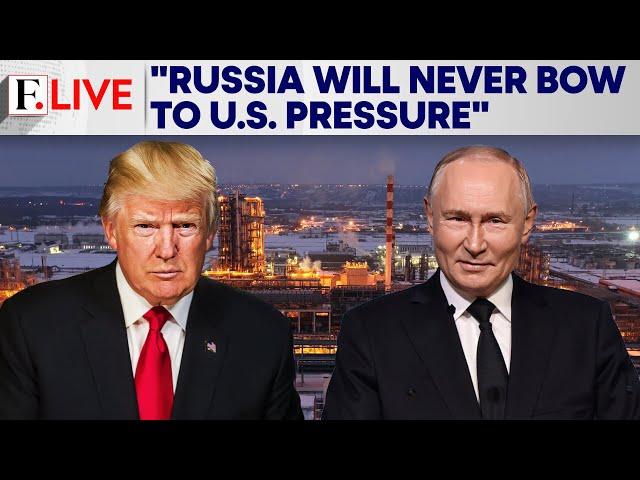The United States has intensified its diplomatic efforts to compel Hungary to cease imports of Russian oil, escalating tensions amid ongoing geopolitical disputes. As Washington presses Budapest to align with broader Western sanctions aimed at curtailing Moscow’s energy revenues, Hungary’s reluctance underscores the complexities within the European Union’s unified stance against Russia. This development marks a critical juncture in the transatlantic strategy to isolate Russia economically in response to its actions in Ukraine.
US Intensifies Diplomatic Efforts to Halt Hungary’s Russian Oil Imports
Diplomatic channels between Washington and Budapest have grown increasingly active as the United States administration pushes for an immediate cessation of Russian oil imports by Hungary. This strategic maneuver aims to align Hungary with broader Western sanctions designed to curtail Moscow’s energy revenues amid ongoing geopolitical tensions in Eastern Europe. US officials have underscored the urgency of compliance during recent high-level meetings, emphasizing the potential economic and political repercussions should Budapest remain reliant on Russian energy supplies.
Key components of the US approach include:
- Enhanced diplomatic engagement through embassy-level talks and bilateral discussions.
- Proposals for alternative energy partnerships to reduce Hungary’s dependency on Moscow.
- Potential economic incentives aimed at facilitating Hungary’s transition to diversified energy sources.
- Monitoring mechanisms to ensure transparency and progress in reducing Russian oil imports.
The US administration’s firm stance has sparked a complex balancing act for Hungary, as Budapest navigates between maintaining vital energy security and responding to international pressure within an increasingly polarized landscape.
| Aspect | US Position | Hungary’s Situation |
|---|---|---|
| Energy Supply | Encourage diversification | High dependence on Russian oil |
| Sanctions | Strict enforcement | Resistance due to economic concerns |
| Diplomatic Talks | Frequent and direct | Careful negotiation stance |
Economic and Security Implications of Continued Energy Ties with Russia
Hungary’s continued reliance on Russian oil imports places the nation at the crossroads of economic vulnerability and geopolitical risk. Persisting energy ties expose Hungary to potential supply disruptions, price volatility, and international sanctions, which could destabilize its domestic economy. Import dependence also limits Budapest’s leverage in foreign policy decisions, effectively tethering it to Moscow’s strategic interests. With global markets trending towards diversification and sustainability, Hungary’s reluctance to pivot away from Russian oil raises concerns about long-term economic resilience.
From a security perspective, maintaining close energy links with Russia complicates Hungary’s standing within NATO and the broader Western alliance. It risks undermining collective sanctions aimed at curbing Russia’s aggression while signaling a fracture in the Western consensus on energy security. The economic implications ripple beyond Budapest, affecting regional stability and energy supply chains. Consider the following factors weighing on Hungary’s energy landscape:
- Energy supply risk: High concentration of imports from a single source increases vulnerability.
- Political leverage: Russia’s energy exports serve as a tool for geopolitical influence.
- Sanction exposure: Potential repercussions for entities engaged in Russian oil trade.
- Market instability: Fluctuating prices impacting inflation and consumer costs.
| Key Factor | Implication |
|---|---|
| Oil Import Dependency | ~65% from Russia |
| Sanctions Compliance | Partial, with exemptions |
| Alternative Sources | Limited capacity, higher costs |
| Energy Security Risk | Medium-High |
Policy Recommendations for Strengthening EU Unity Against Russian Energy Dependence
To counteract the complex challenges posed by Europe’s reliance on Russian energy, the EU must adopt a multi-faceted approach that balances immediacy with long-term sustainability. Central to this strategy is the establishment of a unified regulatory framework that enforces transparency in energy contracts and penalizes non-compliance. Encouraging member states to diversify supply sources through strategic partnerships with alternative energy exporters will reduce vulnerabilities and strengthen collective bargaining power. Moreover, investing in cross-border infrastructure upgrades, such as expanded LNG terminals and interconnectors, will facilitate a more resilient and integrated energy market.
Key initiatives to consider include:
- Implementing EU-wide sanctions targeting companies that violate oil import bans.
- Financial incentives for rapid adoption of renewable energy projects within member states.
- Creating a centralized EU energy reserve to buffer supply disruptions.
- Enhanced intelligence sharing on energy trade flows to detect circumvention of sanctions.
| Policy Area | Focus | Expected Outcome | ||||||
|---|---|---|---|---|---|---|---|---|
| Energy Diversification | Expand partnerships beyond Russia | Reduced dependency, enhanced supply security | ||||||
| Infrastructure | Modernize cross-border energy links | Improved energy flow and market integration | ||||||
|
To counteract the complex challenges posed by Europe’s reliance on Russian energy, the EU must adopt a multi-faceted approach that balances immediacy with long-term sustainability. Central to this strategy is the establishment of a unified regulatory framework that enforces transparency in energy contracts and penalizes non-compliance. Encouraging member states to diversify supply sources through strategic partnerships with alternative energy exporters will reduce vulnerabilities and strengthen collective bargaining power. Moreover, investing in cross-border infrastructure upgrades, such as expanded LNG terminals and interconnectors, will facilitate a more resilient and integrated energy market. Key initiatives to consider include:
|




